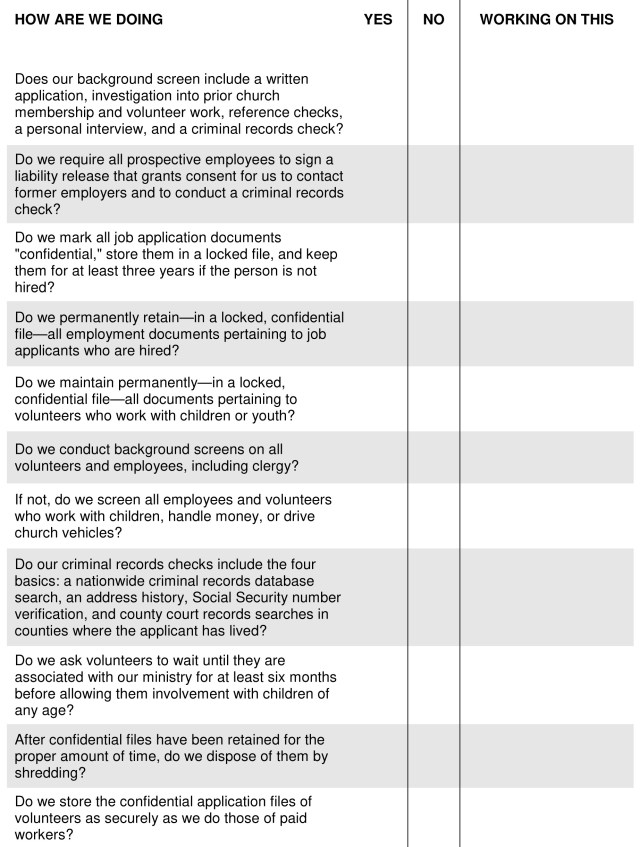
Use the following checklist to gauge how your church is doing at screening employees and volunteers.
Download a PDF version of this checklist.
We’d like to think that all people seeking to work or volunteer for a ministry are honest, ethical, and inherently trustworthy. Unfortunately, they’re not. They’re human, just like us. That’s why it’s so important for every church to conduct thorough background screens before filling any position—paid or volunteer. Use these tips to help your ministry implement an effective screening program.
Before Saying “You’re Hired!”
- Fill in the blanks. Have prospective workers complete a written application form. This step may seem obvious, but many churches have informal hiring practices. A written application provides information that can be used to conduct reference checks and an interview.
- Obtain asking rights. Your application form should include a liability release, signed by the applicant, giving you permission to contact references and obtain any criminal records. It also should release from liability the person being asked to provide information.
- Check references. Contact all individuals, former employers, and organizations listed in the application. Learning what others say about an individual’s past performance and conduct is a vital part of the screening process.
- Have a talk. Once you’ve narrowed the field to a few top candidates, it’s time for an interview. You’ll get a better sense of whether the applicant will be a good fit for your ministry when you meet in person.
After a Great Interview
- Look for criminal records. Some states mandate criminal records checks for certain employees, such as teachers, childcare workers, and others in high-risk settings. It’s a good practice to conduct a criminal records check on all paid and volunteer staff, even ministers, before putting them to work.
- Choose a reputable screening provider. The results you’ll get from a “free” or bargain criminal records search may be worth what you paid. Hire a screening company that uses county court records to verify database information, searches past locations where a person has lived, uncovers alternate or false names, and helps you to comply with state and federal laws.
- Evaluate the results. Finding a criminal conviction may not be enough to disqualify someone from a church position. You’ll need to evaluate the severity of the offense, how long ago it happened, and whether it pertains to the position being filled. An attorney could help you with this analysis.





